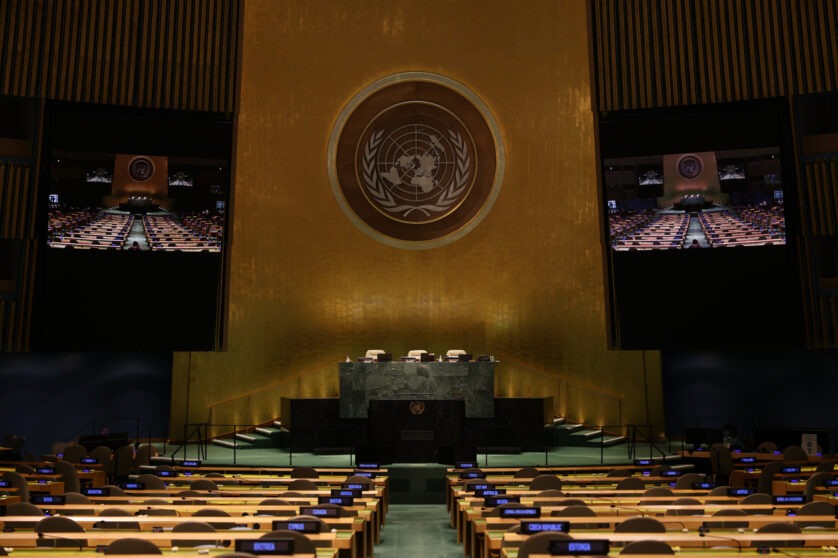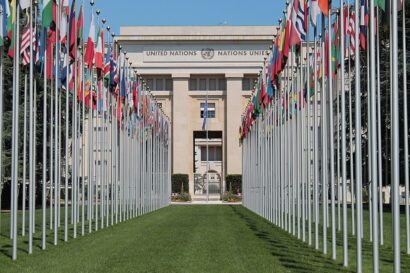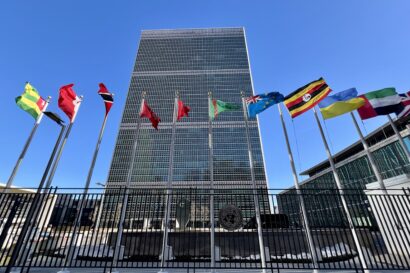When delegates gathered in February to decide on the topic for the second early protocol of the Framework Convention on International Tax Cooperation, the choice of dispute prevention and resolution came quickly. Many described it as less conflictual than other options on the table – a perception that helped build consensus.
But “less conflictual” doesn’t mean simple, and it certainly doesn’t mean the stakes are low. With the third round of negotiations approaching in Nairobi this November, attention is turning to what Protocol 2 will actually deliver.
Tax disputes have become more frequent as the number of cross-border transactions has grown, yet there is a perception that the mechanisms available to resolve them remain inadequate, particularly for lower-income countries. Mutual Agreement Procedures (MAP) under bilateral tax treaties are often slow, costly, and heavily dependent on administrative capacity that many countries simply don’t have.
Protocol 2 presents an opportunity to build more effective and equitable systems, but difficult questions remain. Should the protocol improve existing bilateral mechanisms like MAP and arbitration, or establish new multilateral approaches? Will it cover all cross-border tax disputes, or only those arising under the Framework Convention itself?
Next to resolving disputes, initiatives to prevent them in the first place are on the agenda, as well, among them advance pricing agreements, joint audits, better access to transfer pricing data and simplified standards.
In Part 3 of our UN Tax Convention reading list (read Part 1 on the UN process and institutional context and Part 2 on Protocol 1), we bring together key research and analysis on dispute prevention and resolution.
We’ll be updating all three parts of this reading list regularly as new relevant materials emerge, so check back for the latest resources.
On dispute resolution:
- [INTERGOVERNMENTAL ORGANISATION] Dispute Resolution for International Tax: Reflections on Arbitration, the Mutual Agreement Procedure, and Mediation, Centro Interamericano de Administraciones Tributarias (2025): Reflects on arbitration, MAP and mediation in resolving international tax disputes, highlights key challenges faced by developing countries, and proposes good practices to modernise administrative dispute prevention and resolution.
- [ACADEMIC] Mandatory Binding Tax Treaty Arbitration in the Post-BEPS World: A good option for African countries?, by Samuel Kahura, Francis Bradept, and Chweya Nyamari (2025): Evaluates how mandatory binding arbitration, as proposed under BEPS Action 14, could help African countries manage rising treaty disputes, weighing both its promise for clarity and the risks of reduced autonomy.
- [ACADEMIC] The elusive reform of international tax dispute settlement, by Yariv Brauner (2024): Assesses the persistent absence of a robust global tax dispute resolution mechanism and explores why meaningful reform remains elusive despite its critical necessity in international tax governance.
- [ACADEMIC] An Unfinished Patchwork: An Assessment of the Current International Tax Dispute Resolution System from a Developing Country Perspective, by Natalia Quiñones: Analyzes different dispute resolution and prevention mechanisms available and their suitability for lower income countries, and argues for a comprehensive reform.
- [ACADEMIC] Sovereignty and Tax Treaty Dispute Settlement, by Gerrit Groen, IBFD (2024): Questions whether MAP/arbitration mechanisms erode fiscal sovereignty by evaluating access, independence, and enforceability, and proposes a selective judicialized MAP/arbitration model that balances double taxation relief with democratic regulatory autonomy.
- [ACADEMIC] Reimagining Tax Treaty Dispute Resolution: beyond MAP and Arbitration, by Dhruv Janssen-Sanghavi (2024): Reviews current dispute resolution tools and proposes innovative alternatives beyond the Mutual Agreement Procedure, aiming to modernise how cross-border tax conflicts are resolved.
- [ACADEMIC] Dispute resolution under a Framework Convention on the Promotion of Inclusive and Effective International Tax Cooperation at the United Nations, by Bob Michel (2024): Proposes a dispute resolution regime under the UNFCITC centred on UN Charter conformity and community interests, elevating transparency, and reducing bilateralisation, and considering optional ICJ jurisdiction with institutionalised advisory options.
- [ACADEMIC] An Unacceptable Surrender of Fiscal Sovereignty: The Neoliberal Turn to International Tax Arbitration, by Martin Hearson and Todd Tucker (2021): Traces the rise of mandatory tax arbitration as a late-stage neoliberal tool, showing how US business interests incrementally eroded tax sovereignty through institutional layering, even amid rising economic nationalism.
- [ICTD] International Tax Disputes: Between Supranational Administration and Adjudication, by Sol Picciotto (2016): Critically examines mandatory binding arbitration under BEPS, arguing it pressures tax authorities rather than resolves disputes objectively, and calls for broader institutional and substantive reforms to international tax coordination.
On dispute prevention:
- [ICTD] Implementation of Advance Pricing Agreements: The Case for Low- and Lower-Middle-Income Countries, by Mary Ongore and Prisca Musibi (2025): Examines APA implementation in four LLMICs, highlighting capacity, trust, and administrative readiness as critical factors. Recommends pragmatic, phased adoption to ensure APAs enhance certainty without overburdening nascent TP systems.
- [INTERGOVERNMENTAL ORGANISATION] Keeping it Simple—Efficiency Costs of Fixed Margin Regimes in Transfer Pricing, by Sebastian Beer, Sebastien Leduc, and Jan Loeprick, IMF (2022): Analyses trade-offs in simplifying MNE tax rules, finding that while simplification reduces compliance costs, it can increase inefficiencies, especially in manufacturing, though sectoral variation suggests targeted approaches may mitigate productivity losses.
- [ICTD] A Simplified Method for Taxing Multinationals for Developing Countries: Building on the ‘Amount B’ Proposal to Repair the Transactional Net Margin Method, by Michael Durst (2020): Explores how the ‘Amount B’ proposal could inspire a simplified, restructured TNMM to ease administrative burdens in developing countries, enabling more consistent profit attribution beyond routine distribution functions.
Primary Data
On the main negotiation process
- Issue Notes of Co-Leads from Workstreams I, II and III, UN DESA (August 2025)
- Inputs to first and second sessions of the International Negotiation Committee on the UN Framework Convention on International Tax Cooperation (July 2025)
On the Ad Hoc Committee (2024)
- Terms of reference for a United Nations Framework Convention on International Tax Cooperation, UN DESA (January 2025)
On the pre-agenda making phase (2022-2023)
- Promotion of inclusive and effective international tax cooperation at the United Nations, UN Secretary General (July 2023)
- Resolution 77/244 adopted by the General Assembly on 30 December 2022, UN General Assembly (January 2023)



